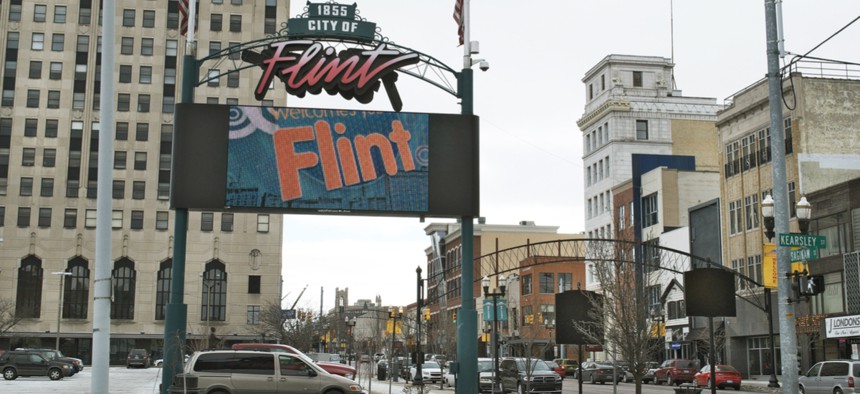How to Bring Back Struggling Cities

Linda Parton/Shutterstock
COMMENTARY | A Manhattan Institute report offers strategies to revitalize such struggling cities as Johnstown, Pennsylvania; Pittsfield, Massachusetts; and Youngstown, Ohio.
In 2014, New York Governor Andrew Cuomo announced plans to build a $15 million film studio near upstate Syracuse, promising 350 high tech jobs. It was one of his many plans to revive the economies of upstate communities with state tax dollars. The facility, in an implausible location for filmmaking, was a flop that attracted little activity, and it was handed off to local government last year for the sum of $1.
This is emblematic of attempts to help America’s struggling post-industrial cities, now back on the national agenda in the wake of the 2016 election, in which Donald Trump won in key Rust Belt states on a promise to bring back jobs. But after 40 years of futile efforts to revive them, the question of how to help these cities continues to bedevil us.
America’s most disadvantaged cities, too often left and behind and forgotten, were undone by powerful forces like deindustrialization and the rise of the global knowledge economy that undermined their economic raison d’être. Difficult as it may be to accept, until market forces swing back in their favor, no major economic recovery is likely for most of them.
But as I point out in a newly released Manhattan Institute report, this doesn’t mean adopting a rhetoric of hopelessness. Rather, it means instead of speculative projects or subsidies, their best strategy is to create the preconditions of revival by fixing their finances, reforming their governance, and rebuilding the core public services on which their residents depend.
What cities are we talking about here? If you ask someone to name a left behind industrial city, you’re likely to hear places like Detroit or Cleveland. They have challenges to be sure, but also much that is positive going on and, more importantly, they have high value assets around which to build a 21st century economy. Detroit, for example, has nine Fortune 500 headquarters, a major concentration of engineering talent, and is a hub for Delta Airlines with non-stop flights to Europe and Asia, among many other things.
The truly left behind and most forgotten cities are smaller places, many of which are little-known: Danville, Illinois; Johnstown, Pennsylvania; Michigan City, Indiana; Pittsfield, Massachusetts; and Youngstown, Ohio.
These metropolitan areas often have several strikes against them, including population loss, weak job markets, low value economies, a low share of adults with college degrees, and a central municipality that is financially distressed. They also have very few if any high value assets to rebuild their economies around. They usually aren’t state capitals and lack elite universities, Fortune 500 corporate headquarters, a major airport (or any airport), and name recognition.
For example, Flint, Michigan is a small metro area of only 400,000 people with no major corporate headquarters, no elite research university, and a very small airport. Only 21 percent of its adults have a college degree (vs. the 32 percent national average). It has one large foundation, but otherwise few assets around which to rebuild. It is a well-known city, but overwhelmingly for reasons such as its lead-water crisis and auto-industry collapse made famous by Michael Moore’s film Roger & Me.
Cities like Flint are in a much tougher position than ones like Detroit. And there are a lot of cities like this. In my new report I identified 48 of these metro areas by a simple rule of picking those with less than one million in population and a central city that had lost 20 percent of more of its population from peak. That’s 12.6 percent of all the metro areas in the country, concentrated in the Midwest and Northeastern Rust Belt.
These cities and other similar ones face big challenges, especially if they are remote from a large metro area and completely lacking in high value assets.
Instead, deeply challenged smaller post-industrial cities should do the basics: Local governments must address their often huge unfunded liabilities and get to structurally balanced budgets. They should reform their governance where necessary, especially by eliminating corruption. And, they need to start rebuilding core public services, especially public safety but also parks, etc. Make no mistake, this will require help from federal and state governments, and may involve painful steps like bankruptcy and prosecutions.
This is not giving up. It’s exactly what New York City did before its comeback. When a financial control board helped it recover from its 1970s brush with bankruptcy, the city put in place a new charter, fought corruption, and started investing in its subways and rebuilding Central Park. It’s also what Detroit did more recently in addressing its financial plight through bankruptcy; creating regional authorities or taxing districts for its water system, convention center, and art museum; and replacing all of its streetlights. It’s what former Syracuse mayor Stephanie Miner said she would do if Governor Cuomo gave her city the same billion dollars he gave Buffalo, proposing to spend three-quarters of the money to repair the city’s water system.
It’s unlikely stagnant cities will be able to directly restore their economic vitality by heavily subsidizing business relocations, constructing expensive large-scale amenities, or other such policies. While they can pursue modestly scaled entrepreneurial support initiatives or downtown improvements, their clear focus should be on civic repairs designed to establish the preconditions for recovery.
This won’t bring America’s left behind cities back by itself, but it will provide better government and services for their residents today, and also lay a foundation for future revival if and when market forces swing back in their favor.
Aaron Renn is a senior fellow at the Manhattan Institute for Policy Research. This article was originally published in CityLab.
NEXT STORY: Want to Regulate Guns? Target Gun Buyers, Not Specific Weapons, Research Suggests





